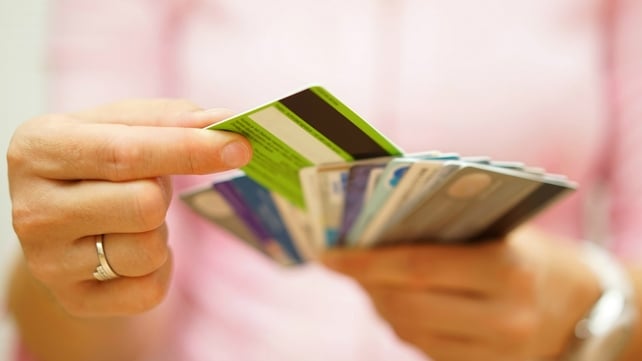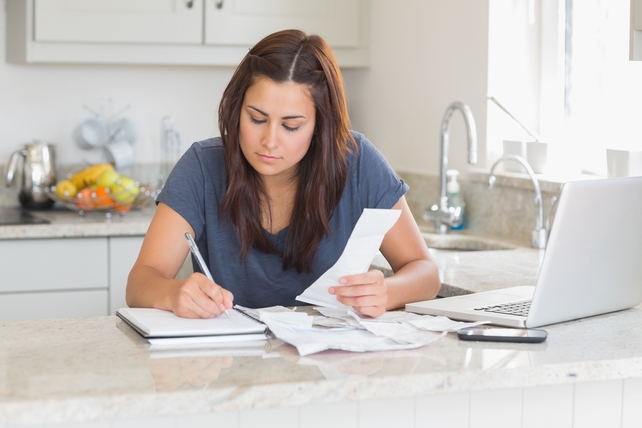Pay as much as you can

Paying more than the minimum payment by even a small amount reduces the time it takes you to get debt free.
Working out how long it will take you to clear your debt can help you put a plan in place. Use the clearing your credit card calculator to work out how long it will take you to clear your debt if you continue with the same repayments, and how long it would take if you increased your repayments.
|
Example: If you have credit card debt of €1,000 and the Annual Percentage Rate (APR) on your card is 17%, it will take you two years to clear your debt if you pay off €50 a month and you stop using the card completely. If you increase your repayments to €100 per month, you could clear your balance in 11 months. The debt is paid off 13 months earlier and you save on interest. |
Can you switch and save?

Have you considered switching credit card provider and seeing if you can get a better deal elsewhere? Use the CCPC’s credit card comparison to check if you could get a better interest rate with another provider. The interest on credit cards ranges from 13.8% to 22.9% so it really pays to compare.
Some providers offer a 0% introductory deal. If you are able to move your balance to a credit card with 0% interest for a period of time, then every cent you pay off will reduce your debt. Remember, this only works if you repay the balance during the interest free period and you don’t use the card! Make sure you’re aware of when the introductory offer ends and what the interest rate will be after this.
If you switch credit cards, make sure to close your old credit card account, so you are not tempted to use both!
Constantly overspending with your card?

Tackling stubborn credit card debt sometimes takes a no-nonsense approach. This starts with not using your card at all. You won’t be able to clear your debt if you keep adding to it. Resist temptation and leave the card at home! Keep it in a safe place and only take it out when you really need it.
If do you need to use your card, try to keep your credit limit low and don’t view it as a spending target. Consider reducing the credit limit to an amount you can comfortably afford to repay every month so you are not able to run up debt you’ll struggle to repay.
Don’t use your card for cash withdrawals except in emergencies, as you will be charged a high interest rate (usually higher than the rate for purchases) often from the day you take out the money, as well as a cash advance fee.
If you find you are regularly over-spending with your credit card, a debit card or a prepaid card for a specific amount may be a better option.
Avoid late payments

Setting up a direct debit for an amount you can afford and choosing a credit card that you can access online is a great way to keep on top of your spending and avoid late payment charges. Late payment charges vary depending on your credit card provider. They can also appear on your credit history and may affect your ability to borrow in the future.
Consider taking out a personal loan

It mightn’t seem like a good idea to take on more debt, but it could be worthwhile taking out a personal loan to clear your credit card. Interest rates on personal loans are generally lower than on credit cards, so you will end up paying less in interest. If you do this, make sure you stop spending on your credit card or else you will be faced with both the loan and credit card repayments.
You can compare the costs of personal loans on the CCPC’s website and work out what your repayments would be.
Note: If you are worried your debt is getting out of control, take a look at our debt action plan. You can also get help from the Money Advice and Budgeting Service (MABS).
Clodagh Coffey is Head of Consumer and Digital Communications with the Competition and Consumer Protection Commission (CCPC). The CCPC is responsible for enforcing competition and consumer protection laws across the economy. To help consumers make informed decisions it also gives independent, unbiased information about consumer rights and personal finance products and service through its consumer helpline 1890 432 432 and consumer website www.consumerhelp.ie.


